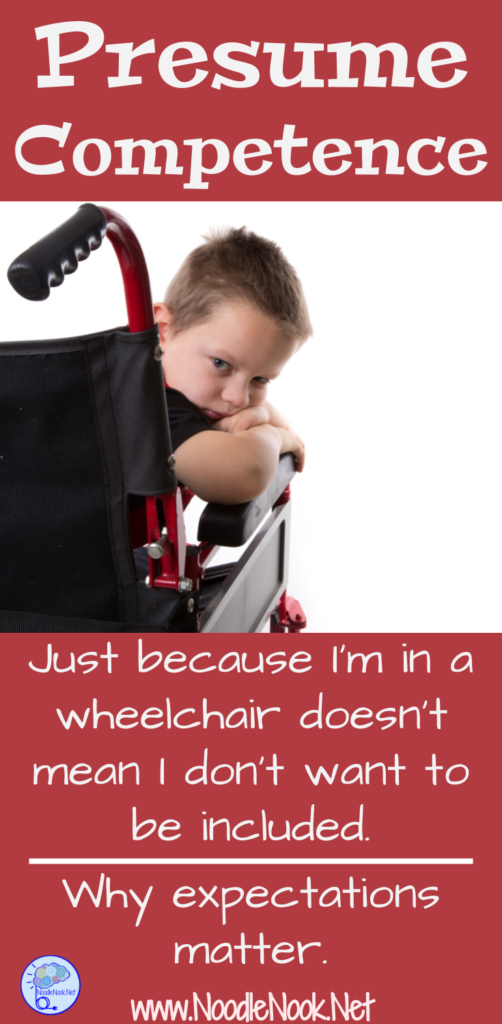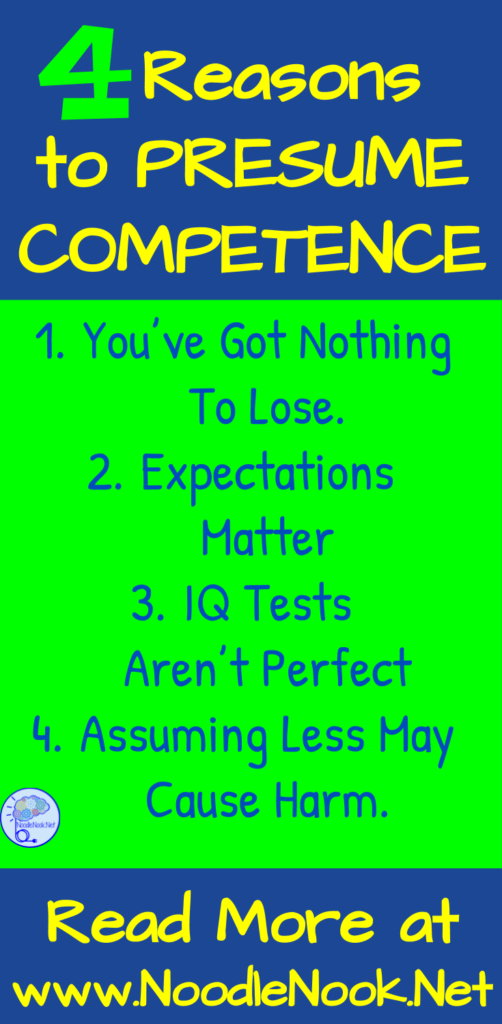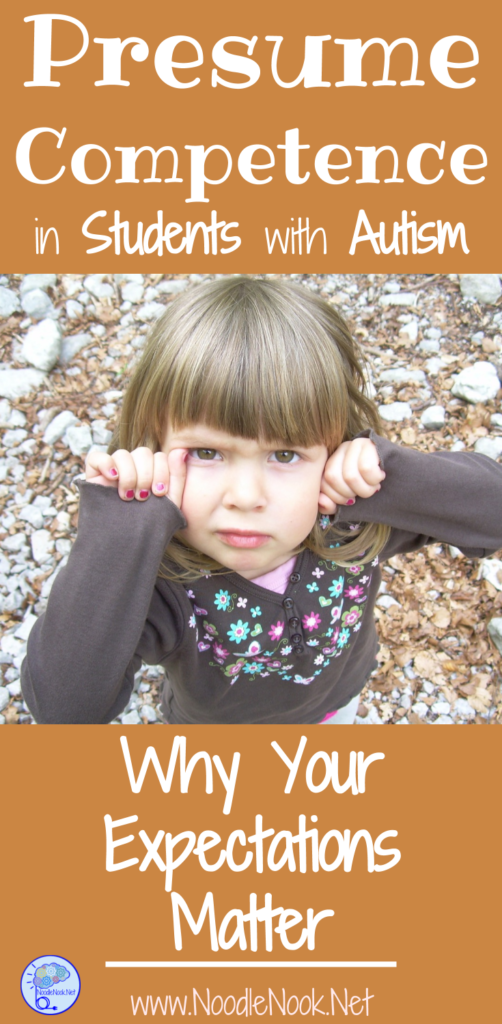Presume Competence
in Autism Units or Self-Contained
A few years ago I was in a classroom where a new student enrolled that morning. They pushed her wheelchair into the self-contained classroom and she spent much of her day there. I was observing a new teacher and noticed her. I went over to speak to her and, though reluctant at first, she started talking to me. That’s when I realized that something was wrong. She was extremely bright and well-spoken. I left the classroom and went to the registrar’s office. They were swamped and short handed that day. I was out to look at the new girl’s paperwork and figure out what was up. That’s when I saw it. She was a general ed student- though her out of state class names may have been confusing. In fact, I noticed, she was a star student. Whoever did her intake that morning saw her wheelchair and that she needed a 1:1 aide… and made the assumption that she was a self-contained kid. They could not have been more wrong.
Presume Competence People
To this day I am not sure why that student didn’t say something.
Why didn’t she advocate for herself?
Why didn’t she tell someone she was in the wrong place?
But then I have to ask myself the bigger question, why did we look at her wheelchair and assume she was retarded? I know that is a derogatory word, but I can’t think of anything else to describe looking at a student in a wheelchair, seeing their physical limitations, and then drawing a conclusion about their intellect.
But we see this over and over again… and oftentimes it’s not just with people who don’t know any better. It’s also with the teachers tasked to educate them.
People, we always have to presume competence!
What Does Presume Competence Mean?
I hate to think there are people out there who are still unsure about what presumed competence means, but this may be the first time you’re hearing it. You can read more about Least Dangerous Assumption here.
Let’s start here, just because a student isn’t able to speak doesn’t mean they don’t have anything to say. Just because a student doesn’t do well in social situations doesn’t mean they don’t want to have friends. And just because someone isn’t able to move their body doesn’t mean they don’t want to be involved. We can’t look at a student, see their limitations, and lower our expectations. We always have to be under the assumption that they deserve the best and are entitled to the same experiences, education, and expectations as their non-disabled peers.
Read more about Teaching Nonverbal Students, Addressing Problem Behavior, or Improving Social Skills.
When we don’t presume competence, our expectations go down and so does the education that we provide. And what if you’re wrong? What if you lower your expectations and provide a substandard education to a student who is of normal intellect? That can cause irreparable harm. in order to avoid such a disastrous outcome, we must always presume that our students are competent hence presumed competence.
[tweetthis]Why do we see a kid in a wheelchair and assume they are not smart? Presume Competence![/tweetthis]
4 Reasons to Presume Competence
There are obvious reasons to presume competence… but if you need a bulleted list, here it goes.
- If we presume competence and we are right, we win. If we presume competence and we are wrong, we have lost nothing- just delivered a quality education.
- The expectations we have for our students and the expectations they have for themselves matter.
- IQ testing is not perfect and certain disabilities limit accurate IQ measurement.
- Presuming Incompetence can cause irreparable harm if you are wrong.
How to Get Others to Presume
So you presume competence… but the people around you are not so convinced. It is not always aides that seem tough to convince. Sometimes it is the administration (because they have little experience in the self-contained classroom or Autism Unit), sometimes it is the related services staff (who don’t benefit from lots of time spent with students and seeing academic growth), and sometimes it’s the parents (who believe what doctors or experts say and not what they know inside). Disbelief can be anywhere.
So what do you do? Demand it. Let people know when they are in your classroom, they will always treat students the same way as they would their non-disabled peers. They will always respect the dignity of the person they’re working with. They will always remember that everybody is somebody’s baby.
What Happens If You Don’t?
What happens if you don’t presume competence? There’s no competence police that come blaring around the corner out to arrest anyone who violates the presume competence statute. But don’t be one who sees a disability instead of seeing the person in front of them. And urge those around you to see the person first- a person who wants to communicate, wants to socialize, wants to have friends, and wants to learn… not just the stimming, spitting, humming autistic child sitting in front of them or the immobile, fragile student with cerebral palsy.
Now go forth and teach on… presuming competence.
References
(n.d.). Download Presume Competence [PDF] – Autism Society of Michigan. Retrieved February 13, 2017, from https://www.autism-mi.org/wp-content/uploads/2015/12/Presume-Competence_Hussman-Institute.pdf







